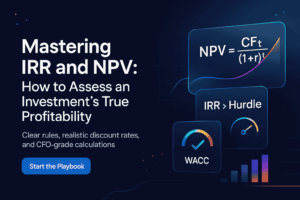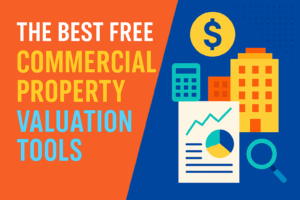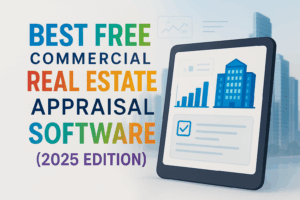Types of Commercial Lenders
As we all know, the Federal Reserve has become hawkish when it comes to interest rates. The continual increase in interest rates will have a noticeable impact on commercial real estate. Especially to the ones who have a loan maturity date in the near future. Now more than ever, it’s imperative to be as strategic as possible when picking the right loan for either a refinance or acquisition. As we all know, leverage is a powerful tool. However, it can also become a burden if not properly utilized. To help mitigate some of this risk, we have provided the four most common types of commercial lenders to help you make an informed decision.
Don’t forget to capitalize on Compass during your underwriting process. Compass is the best way to test out different financing options against your property. There is nothing more valuable than having a solid budgetary plan in place when choosing a loan for a refinance or acquisition.
Commercial Banks
These can be big banks like KeyBank, Walker & Dunlop, and Wells Fargo but it can also be local banks as well. Commercial banks are seen as balance sheet banks. This is because they typically keep the loans on their own balance sheet rather than selling them onto the secondary market. When using commercial banks, you can expect to see more recourse loans rather than nonrecourse loans. Seeing that the borrower is on the hook, the loan terms are a lot more flexible.
It’s important to know that these types of loans are very relationship focused. As you build a relationship with the bank of your choice, you will be able to negotiate longer interest only periods, wave prepayment penalties and other advantageous terms that come with doing business with the same shop. If you intend to go this route, it may be wise to pick a local bank that you can build a solid relationship with. For those of you that already have a strong relationship with a bank, you may want to focus on strengthening that relationship.
Insurance Agencies
These are agencies like MetLife, Prudential, and New York life. These agencies get their money through their policy holder premiums and then lend that money out into the market as commercial real estate deals. Insurance company lenders have been a great source of long-term, fixed rate, nonrecourse debt. These companies typically make loans out to large “trophy case assets.” These trophy case assets are typically class A buildings that are in low-risk successful areas.
Sense they are nonrecourse lenders, they are very focused on the performance of the specific property. The agencies focus on the overall portfolio’s leverage levels and performance. The more stable the property or portfolio, the better the terms and probability of them financing the project.
In addition to property performance, most of the analysis done on the borrower is on the track record of the company and/or the key principles of the borrowing entity. Sense the focus for insurance companies is generating long term cashflow, they tend to issue low leveraged loans and underwrite extremely conservatively to make sure they minimize risk. This can make borrowing through these agencies very difficult.
Commercial Backed Securities (CMBS)
CMBS Loans are much more strictly regulated than you will see from banks or Insurance agency loans. This is because borrowers of CMBS debt must be single purpose entities (SPE) that are an LLC or corporations. The SPE’s must have no other assets other than holding title to the property. CMBS loans are typically non-recourse loans. To protect the investors, there are what is known as “Bad Boy” carve out provisions. These provisions will turn the loan into a recourse loan if the borrow is involved in fraud, bankruptcy, or subordinate financing without the consent of the lender.
CMBS lenders secure these loans by pooling these mortgages into a single security and sell pieces of the security to the public market. Sense these are sold to the public market, that means that this type of financing comes with a lot more regulation. Unlike commercial banks and insurance companies, these types of loans are much more transactional based and have ridged loan structures. One area in particular where regulations impact borrowers is the ability to prepay a CMBS loan.
Most CMBS loans have lockout windows on prepayment. Even after the lockout window has surpassed, there are typically significant prepayment penalties. The reason for these penalties is because the investors in that security expect a certain fixed rate of return over the life of their investment. The prepayment penalties are typically seen as a yield maintenance or defeasance to make up that lost yield that the investor would have otherwise received if they didn’t make that prepayment. These types of penalties can be extremely costly to a borrower. So, if you choose to use a CMBS loan make sure that you are certain that you are willing to hold that property for the entire duration of that loan term.
Agency Financing
This type of lender is a government sponsored enterprises (GSE) that was established to spur certain sectors of the American economy. In this case, residential housing. These lenders fund loans on multi-family properties. They are able to offer extremely competitive terms that many other multi-family lenders just can’t match.
Just like CMBS loans, they are extremely regulated and standardized. The reason for this is because these loans are typically packaged up and then sold onto the secondary market. This means that you will often see similar prepayment penalties like yield maintenance and defeasance which can be extremely costly if you have to prepay the loan. You will, however, be able to benefit off non-recourse financing. Just like a CMBS, this also has the “Bad Boy” carve outs.
Fannie Mae and Freddie Mac do not directly select the projects that they are going to lend on. Instead, they partner with private lending institutions that follow strict agency guidelines. These agencies are known as Designated Underwriter Servicers (DUS). As the name implies, they will also service the borrowers. Instead of interfacing with Fannie or Freddie, the borrowers will work directly with the DUS. Some of the companies that offer agency financing are Wells Fargo, CBRE, Berkadia, and Walker & Dunlop. This type of financing can be one of the most competitive when it comes to loan terms. If you are able to fit this type of financing into your project, it can be a great option to choose.













